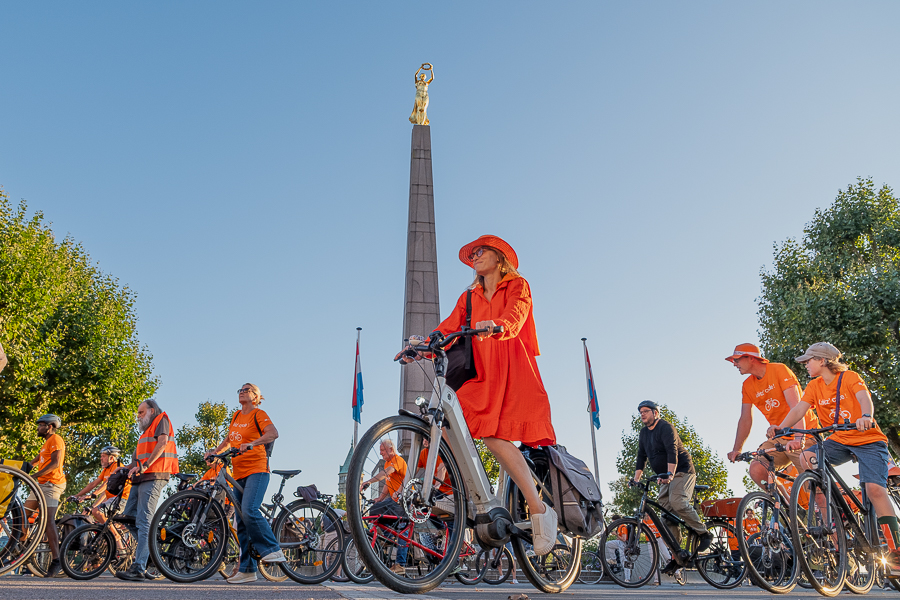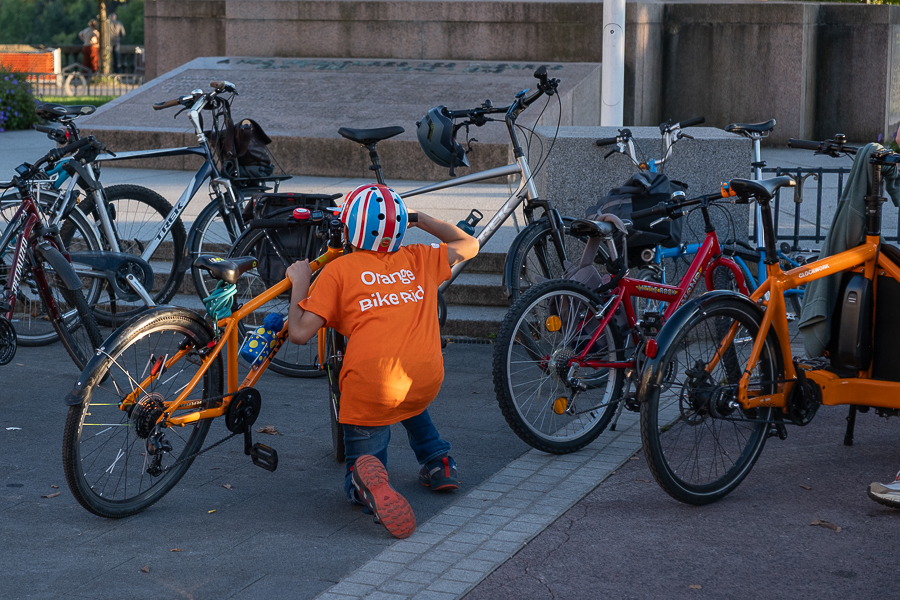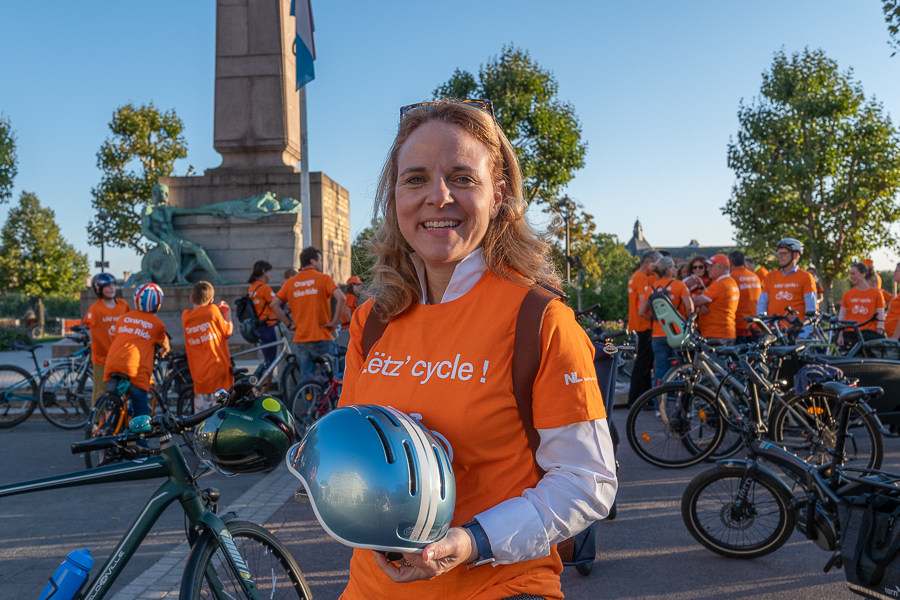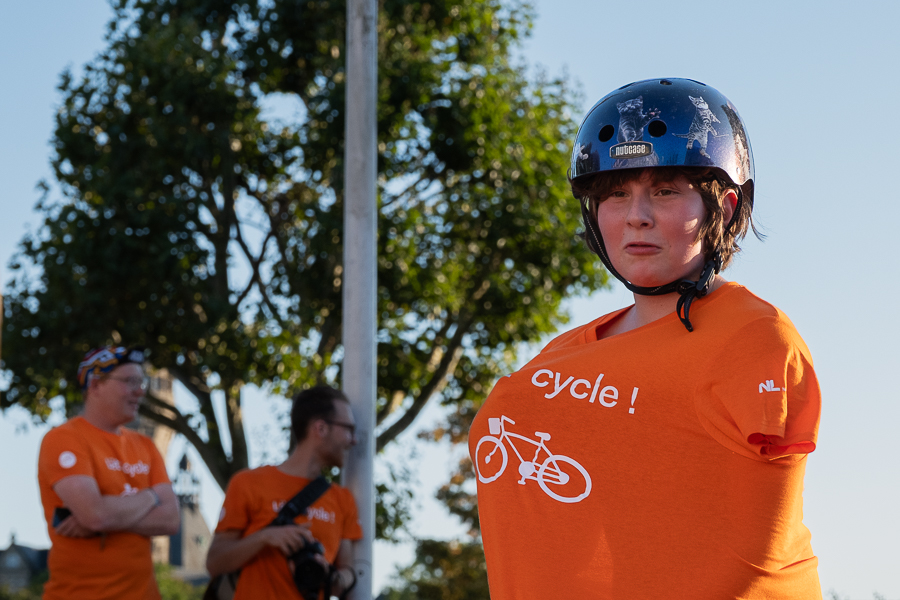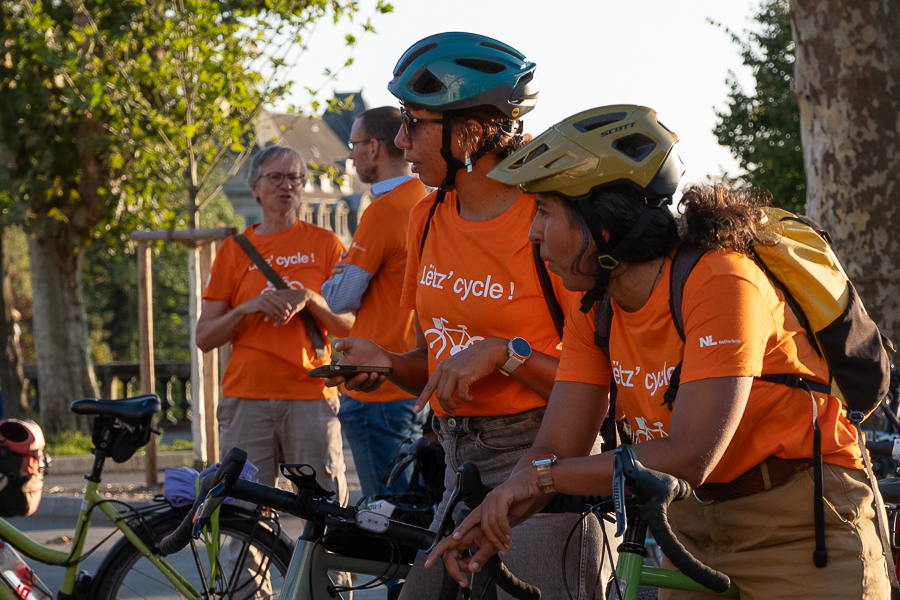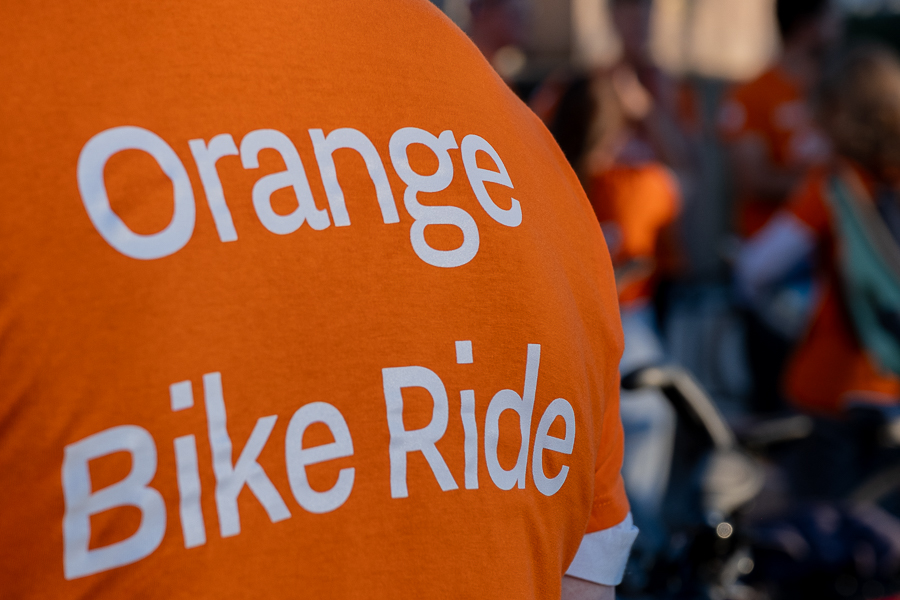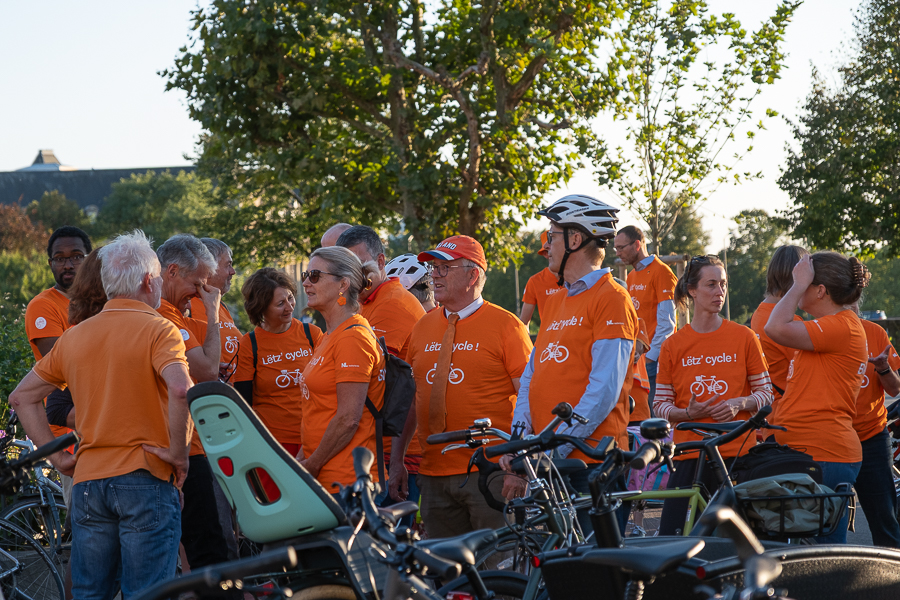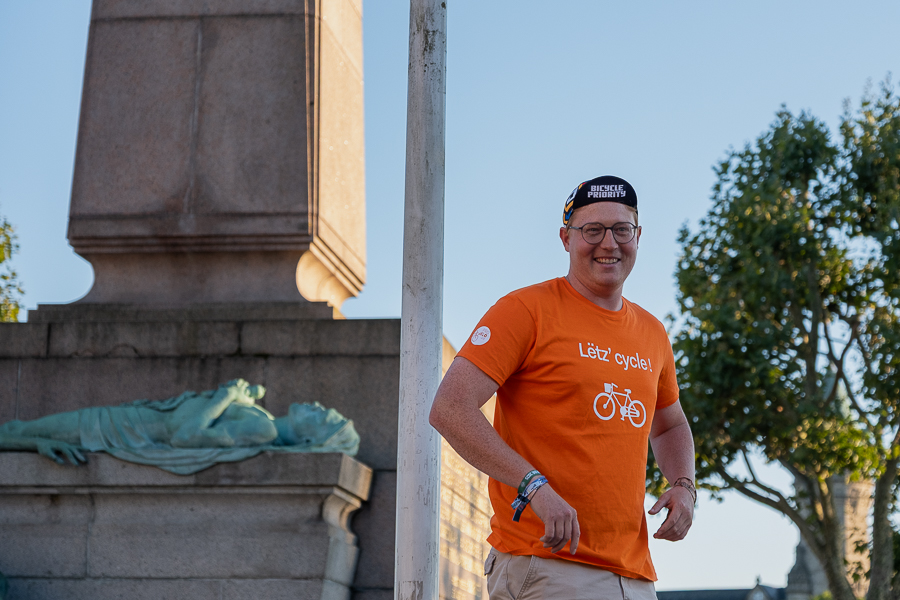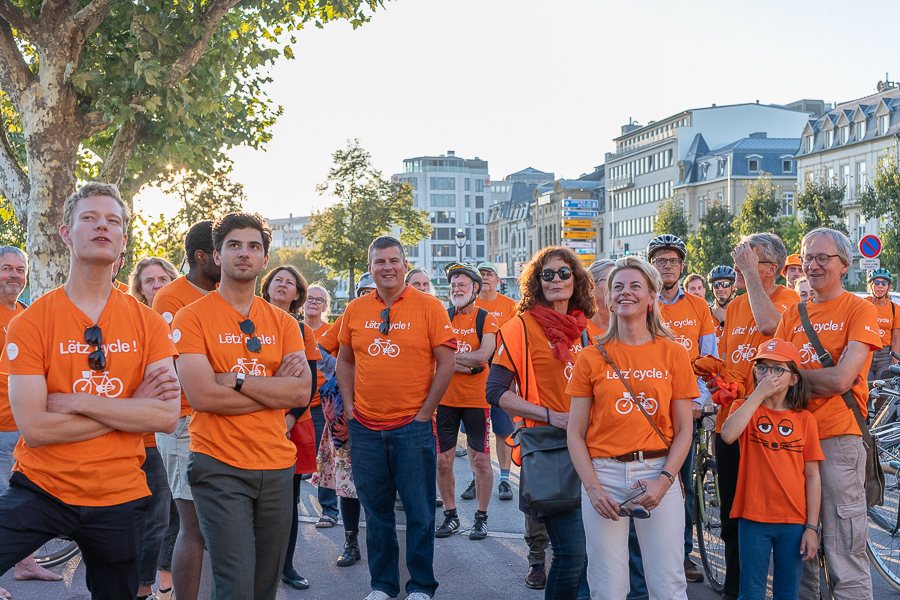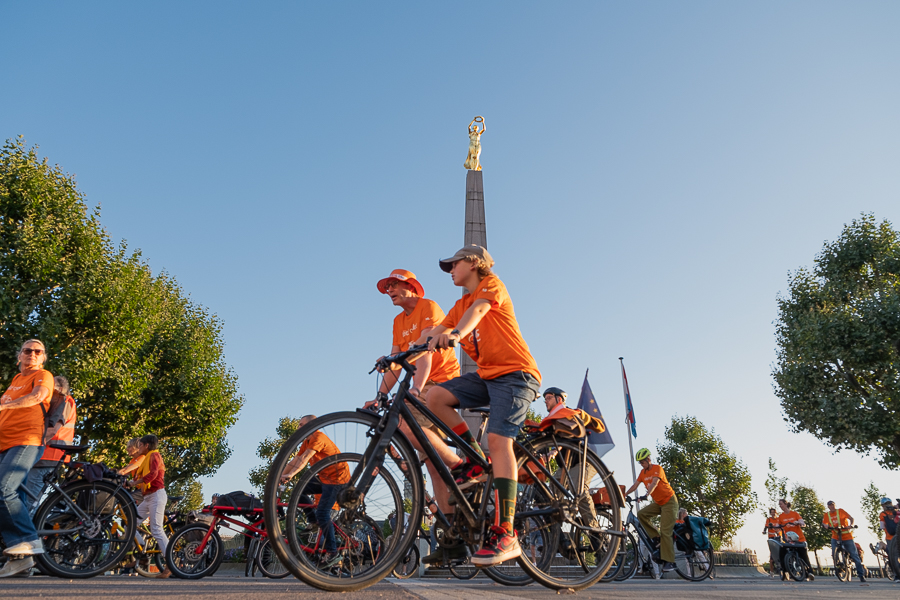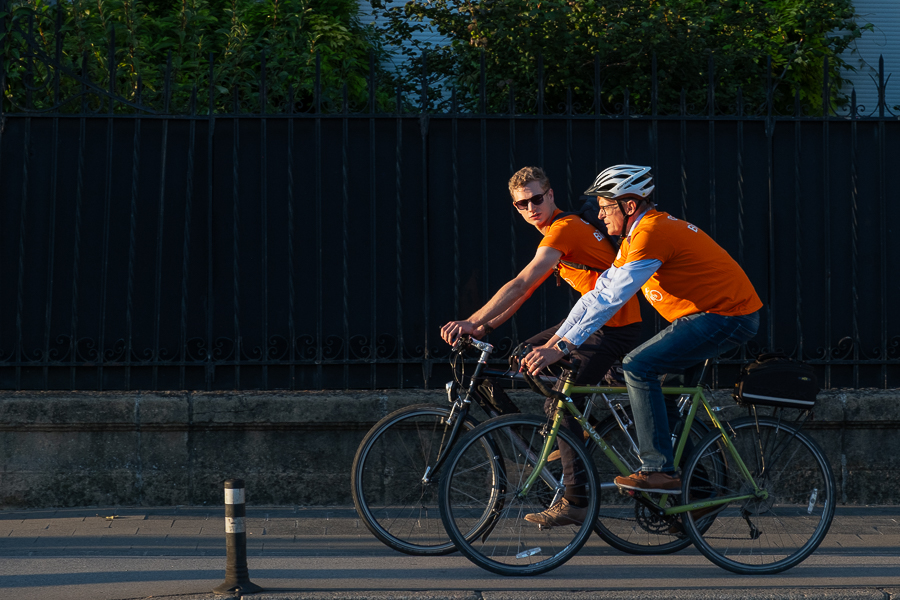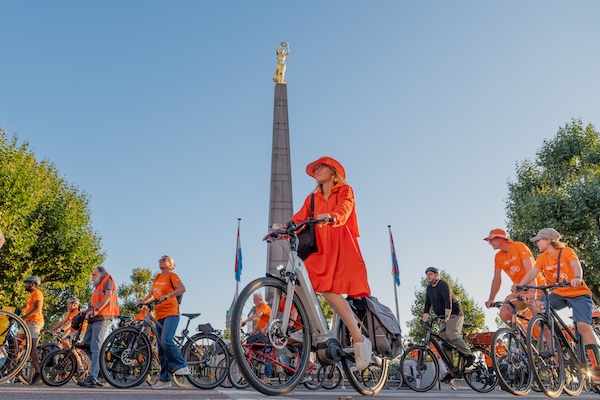 Credit: Ali Sahib, Chronicle.lu
Credit: Ali Sahib, Chronicle.lu
On Friday 19 September 2025, the Embassy of the Netherlands in Luxembourg held an “Orange Bike Ride” and film event, as part of European Mobility Week (16-22 September).
For the Orange Bike Ride, participants gathered at the Gëlle Fra (Golden Lady) statue in Place de la Constitution in Luxembourg-Ville on Friday evening. They cycled through the capital on their own bicycles - many of which featured orange decorations. The ride was followed by a screening of the documentary Together we cycle at Kinepolis Kirchberg, where Dutch-French cycling expert Stein van Oosteren was moderator.
Speaking to Chronicle.lu about the event, the Dutch Ambassador to Luxembourg, Carin Lobbezoo, said: “With the Orange Bike Ride we want to raise awareness for the importance of cycling as a sustainable transportation alternative, highlight the rich history of the Netherlands as a cycling nation and promote sustainable mobility practices in Luxembourg. And what would be a better moment to do this than during the EU Mobility Week?”
She highlighted the widespread use of bicycles in the Netherlands, where “people cycle 18.2 billion kilometres annually, which means an average of 3 km per person per day”. She noted some of the benefits: “More people taking their bikes around town means countless advantages: cleaner air, better health, more vibrant and inclusive cities, and a smaller C02 footprint. We are keen to share these benefits with our close friend and Benelux-partner, Luxembourg."
Stein van Oosteren also shared his insights: "It took the Netherlands 50 years to become a cycling country, because there was no reference book to tell the story of the cycling nation. Now that the story and the experience exist, they are ready to be used. All one needs is that intuitive feeling that it can actually work at home, and that is what the unique film ‘Together we cycle’ shows.”
“Cycling is not about bicycles but about building a new way of enjoying the city. It's not about building bicycle lanes but about building the livable city for all, including children, handicapped and elderly people,” he continued. “What counts is not the bicycle itself, but what changes around you when you hop on a bicycle and start using it. It's a way of life that is pleasant because it connects you to other people, to the city and to nature. It reminds us that we are bodies and minds, and that they like to be used. Behind all reasons to cycle, there are two other reasons we easily forget: pleasure and freedom".
JC

